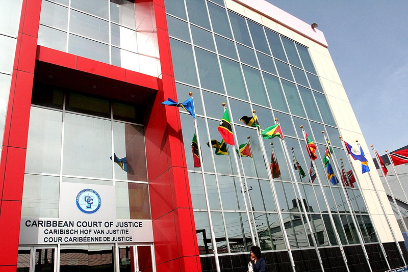Dear Editor,
I wish to share certain concerns regarding the CCJ. Some of these concerns are grounded in a speech made on August 3, 2022, by the Honourable Mr. Justice Adrian Saunders, president of the Caribbean Court of Justice, at a Special Lecture and Dinner to celebrate the 60th anniversary of the establishment of the Court of Appeal (Jamaica).
In outlining the role of a final court, the president stated, inter alia, that the role of an apex court is to consider and, if necessary to engage in a “course reset” and in “system-wide correction.”
According to President Saunders: “In a healthy democracy, a decent percentage of the judgements of the Court of Appeal (10–15%)) should be appealed to the Apex Court so that the Court can interstitially and in partnership with legislature close the gap between law and society.” Is this implying that the CCJ, as the final appellate court, should, in giving its judgements, be aiming to achieve “course reset” and closure of the alleged gap between law and society? This is to be contrasted with the manner in which the Privy Council has repeatedly described its role, particularly in constitutional matters. In the case of Jay Chandler (Appellant) v The State (Respondent) (No 2) (Trinidad and Tobago) [2022] UKPC 19, the Privy Council used the occasion to repeat its approach:
“A constitution is an exercise in balancing the rights of the individual
against the democratic rights of the majority. On the one hand, the fundamental rights and freedoms of the individual must be entrenched against future legislative action if they are to be properly protected; on the other hand, the powers of the legislature must not be unduly circumscribed if the democratic process is to be allowed its proper scope. The balance is drawn by the Constitution. The judicial task is to interpret the Constitution in order to determine where the balance is drawn; not to substitute the judges’ views where it should be drawn.” Para 55
In the aforementioned speech, President Saunders also stated that the CCJ is an “executing agency for donor funds” from the international community “designed for justice improvement throughout the region.” My question is: Is it appropriate for a court to take on this role, that is, the role of being an executing agency for donor funds? Shouldn’t such funds be channelled through relevant ministries of governments? To make matters worse, one of the donor agencies, UN Women, engages in outright LGBT activism!
Additionally, it is doubtful that a candidate for a judicial post with the CCJ could be successful if he or she is a member of an organisation that opposes homosexuality. In this regard, we refer to the CCJ Code of Judicial Conduct, which states that:
5.6 Judges shall not be a member of, nor associate with any society or organisation which practises, or may reasonably be perceived as practising invidious discrimination on the basis of any irrelevant consideration.
Note that “the terms “sexual orientation” and “gender identity” are referred to in code 5.1 as being included in the term “irrelevant consideration.”
Politically, there would seem to be a strong argument for Jamaica to replace the Privy Council with the CCJ. I am however concerned that the CCJ has taken unto itself an activist role whose aim is to further “liberate” us from colonialism. Is activism an appropriate robe for judges to wear? Isn’t activism more suited for politicians than for judges? It is also critical that in switching to the CCJ, Jamaica does not find itself in a situation comparable to the animals in “Animal Farm”, resulting in us not being “liberated” but resulting instead in us slavishly copying, step by step, the new ideologies and lifestyles of our former masters.
Shirley Richards


